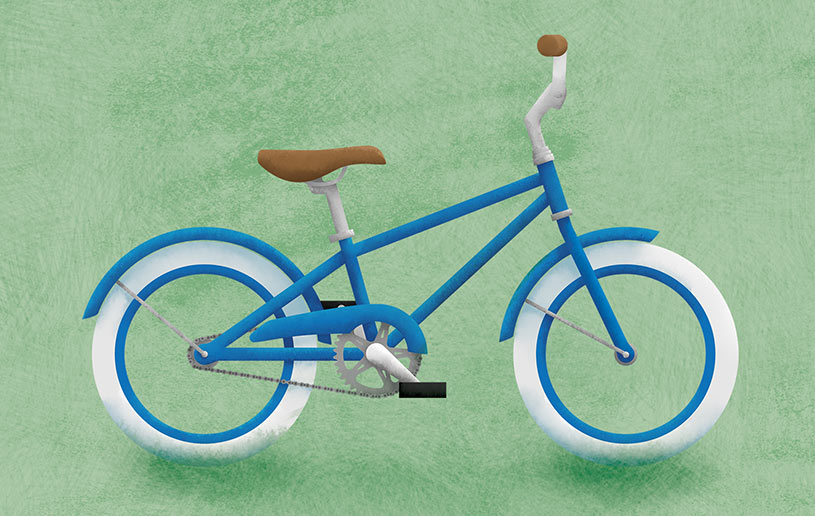
When I was young I learned how to ride a bike. I perched awkwardly on the seat while my friend held onto it. He would run alongside, helping me steady, and then push me forward yelling “Keep pedalling!” After numerous crash landings, scrapes, and bruises I got the hang of it.
When my children were learning to ride a bike I attached training wheels to their bicycles. This was to make it easier and safer to ride when I wasn’t around to support them. Once they mastered the basics of riding, such as balance and avoiding trees, I took the training wheels off. Then they were able to experience the thrill and freedom of really riding a bike.
It occurred to me that riding a bike with training wheels is like learning to say prayers. I learned to say prayers at bedtime. My siblings and I simply repeated what my mother said. It was mechanical but we learned the basics. And we rarely crashed except when we laughed or started fighting.
When we learn something new, mechanical aids like training wheels can be helpful. I recall someone giving me what I’d call a set of prayer training wheels in the form of the acrostic ACTS. The letters stand for adoration, confession, thanksgiving, and supplication. The acrostic captures some of the basic kinds of prayer found in Scripture and can be helpful when one is first learning to pray.
But there comes a time when we must move away from the training wheels. In the case of prayer, this means moving away from saying prayers to praying from the heart. Praying isn’t supposed to be a mechanical formula or repetition of words (Isaiah 29:13).
This is where many of us Christians get stuck. We continue using our prayer training wheels—the prayer-language we have heard modelled or the words we’ve always used. We have difficulty making the transition from the training wheels of saying prayers to true heartfelt prayer.
For me, a turning point came upon noticing how my prayer became so much more fervent, passionate, and heartfelt when things became critical or desperate. My rote prayers didn’t cut it in times of crisis. In those times I wasn’t just saying prayers, I felt I was actually praying. Real prayer was springing from my great sense of need and dependence on the Lord. I learned a fundamental attitude for praying from the heart is to continually realize how dependent I am on the Lord.
Someone might rightly ask whether we then need to be going around in a constant state of crisis to truly pray. The answer is no. Because even though I may not be in a crisis and feeling totally dependent on the Lord, the Bible teaches us that whether we feel it or not, we are totally dependent on Him. It is a fact we must accept and live by faith.
When that attitude of total dependence is there, prayer flows from our heart. It is meaningful, permeating and prompting the various kinds of praying we do.
Let me elaborate. When we are saturated with a true sense of our limitations and finiteness on one hand and then consider God’s awesome majesty and eternal supremacy on the other, we can’t help but respond from our hearts with adoration for Him. It’s all as natural as craving water when you are thirsty.
When we have sinned and sincerely recognize our failure and how much we need God’s righteousness, forgiving grace, and mercy, then honest confession will freely flow from our hearts.
As we think of how gracious and merciful the Lord has been to us, and everyone around us, our hearts will burst forth with genuine thanksgiving and praise to Him.
And when we consider the many needs we all have and then reflect on God’s abilities, sovereign control, and bountiful riches, then supplication (asking for ourselves) and intercession (asking for others) naturally pour out to Him.
Once I took the training wheels off my kids’ bikes I never put them on again. They didn’t need them. I just wish someone invented something like that for when they were learning to drive a car but that is another story.
If you’re still using prayer training wheels why not try praying without them? Realize your dependence on the Lord and begin to experience the freedom of really praying.

